Welcome to the Wilderness School
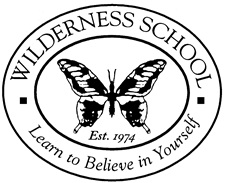 2240 North Hollow Road
2240 North Hollow Road
East Hartland, CT 06027
Phone: 860-653-8059
E-mail: Wildernessjourney@ct.gov
About the Wilderness School
About the Staff
Enrollment Forms
Expeditions
FAQs
Policies (Enrollment, Behavioral and Tuition)
Summer Calendar (2020)
__________________________
Director: Aaron Wiebe (Aaron.Wiebe@ct.gov)
Field Program Supervisors:
[Expeditions] Scott Basile (Scott.Basile@ct.gov)
[Enrollment] Bonnie Sterpka (Bonnie.Sterpka@ct.gov)
[Outreach] Kimberly Thorne-Kaunelis (Kim.Thorne-Kaunelis@ct.gov)
__________________________
About the Wilderness School
- The Wilderness School is a prevention, intervention, and transition program for adolescents from Connecticut.
- The Wilderness School offers high impact wilderness programs year round ranging in length from 1-day programs to 20-Day Expeditions!
- Activities include hiking, camping, rock climbing, canoeing, high ropes course experiences, winter programming, and service learning.
- Wilderness School programs emphasize team-building, peer relations, self-reliance, responsibility, improved self-concept, and conflict resolution.
- Other programs include agency engagement, staff development and wellness, and work with families to enhance relationships within the family and their community social system.
The Wilderness School Overview
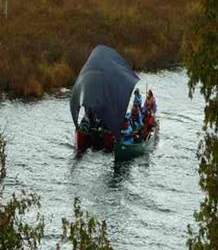 The Wilderness School is a program of the State of Connecticut, Department of Children and Families (DCF) and was created in 1974 as an alternative for troubled youth and in response to needs expressed by Connecticut human service agencies. The Wilderness School is licensed by the State’s Office of Early Childhood as a Youth Camp.
The Wilderness School is a program of the State of Connecticut, Department of Children and Families (DCF) and was created in 1974 as an alternative for troubled youth and in response to needs expressed by Connecticut human service agencies. The Wilderness School is licensed by the State’s Office of Early Childhood as a Youth Camp.
The Wilderness School program model has been designed specifically around serving “at-risk” adolescents and their families who are struggling in their homes and communities and who face above average challenges in their lives. These challenges may include history of trauma, family systems breakdown, mental health issues, school failure, legal issues, learning disabilities and social and emotional deficits. Wilderness School has aimed to help participants discover a broader knowledge of his/her own strengths and to enhance their capabilities in relation to their role in their family and community social system. In this effort, Wilderness School has expand its role as a family engagement center and partner in supporting the health and wellness of the Department’s workforce.
The program accepts referrals from agencies throughout Connecticut, including the Department of Children and Families, youth service bureaus, public and private schools, the juvenile court, mental health clinics, private and state psychiatric hospitals, and other youth serving agencies.
Programming
Wilderness School uses Adventure Based Group Work or Adventure Therapy to achieve desired outcomes.
Adventure Therapy is recently defined by Gass, Gillis and Russel (2012) as “the prescriptive use of adventure experiences provided by mental health professionals, often conducted in natural settings that kinesthetically engage clients on cognitive, affective and behavioral levels.” Adventure Therapy itself gained traction upon the use of Outward Bound and inception of several therapeutic programs using wilderness and adventure in the 1970’s and 1980’s. Across the country, it became more widely accepted that the wilderness environment was healing for delinquent youth and those receiving outpatient and inpatient mental health care, and that cognitive and behavioral changes could happen as a result of its use (Davis-Berman & Berman, 1994). Furthermore, Adventure Therapy has shown to reduce symptoms of distress related to interpersonal issues and mental health challenges as well as improving overall functioning of adolescent clients (Norton, Tucker, Russell, Bettman, Gass, Gillis & Behrens, 2014).
This type of intervention involves the physical engagement of participants and the intentional use of cooperative games, problem solving initiatives, challenges, and adventure activities, often in an outdoor setting. Adventure-based group work has been used to promote social skills, enhance self-concept and perception of competence in major life skills, and foster group cohesion.
Wilderness School‘s programming is provided on a continuum of challenges and difficulty to serve participants who demonstrate various levels of struggle and capacity. Participant needs are met by offering an array of services that consider duration of programming (from 1 to 20 days), proximity to roads and amenities vs. wilderness, intensity of activities, and facilitator to participant ratios. Programs are group-oriented, strengths-based, and reflective. Ultimately, each course and engagement is “Challenge by Choice.” Wilderness School’s most fundamental and core program is the Expedition and Follow-Up program which highlight adolescent participation in extended summer expeditions with opportunities for follow-up programming in the proceeding 9 months.
Activities may involve rock climbing, hiking, canoeing, ropes course/challenge course, wilderness camping, cross-country skiing, snow-shoeing, and winter-camping. Additionally, the program may facilitate mindfulness and reflective activities, therapeutic art activities, service projects, and teambuilding activities and challenges.
As an “embedded” program within the Department of Children and Families, The Wilderness School is uniquely positioned to partner with families and systems of care. This has been a significant quality of Wilderness School’s function and process especially when engaging students in working through a crisis. The program’s most significant interventions involve engaging the most caring and significant people in relation to the student to help reinforce the compassionate and respectful efforts of the program. Working beyond the crisis, the programs ability to engage each student’s family and support system on broader terms will be a continued area of focus.
Research
Studies have documented the Wilderness School's positive impact upon the self-esteem, increased locus of control (personal responsibility), and interpersonal skill enhancement of adolescents attending the program. Traditionally, the Wilderness School has also sought to emphasize the development of values such as cooperation, compassion, and responsibility among our student population.
The positive results of the Wilderness School experience have been documented by nine formal evaluations. The original evaluation by Solomon Cytrynbaum of the Yale University Medical School shared that “graduates of the Wilderness School are less likely to be in trouble with the law, are less involved with drugs and alcohol and less systems dependent relative to where they were before the experiment and when compared to a comparable group of youngsters who did not have a wilderness experience.”
Subsequent evaluations have shown improvements in students’ self-confidence, self-concept, interpersonal problem-solving techniques, social functioning, as well as decreased drug and alcohol abuse, legal difficulties and systems dependency.
Wilderness School continues to partner both internally through The DCF Office of Research and Evaluation and externally with leading universities and research practitioners in the field of Adventure Based Group Work interventions with youth and families.
Current Staffing and Training
At the present time, a Director along with 3 full-time and year-round interdisciplinary staff with education and training in outdoor experiential education, clinical social work, counseling, marriage and family therapy and clinical psychology serve as administrators and supervisors. The full-time staff are certified in Wilderness First Responder (WFR), Cardio-Pulmonary Resuscitation (CPR), and Water Safety through the American Red Cross. The full-time team are actively involved with and/or certified in all technical activities and risk management.
Twenty-eight seasonal staff with knowledge and interest in outdoor education and experiential learning are integral to programming during the spring, summer, and fall. Currently, 9 positions are established from Early April through June. The full complement of all 28 seasonal positions are active from June through August and 9 positions are held through early November. Program staff have previous experience in Outward Bound, National Outdoor Leadership, and affiliated wilderness education associations. The majority of seasonal staff are enrolled in undergraduate and graduate level training in education, ecological studies, human services, and social work. Each seasonal staff member receives individual and group supervision with one of the full-time staff.
All full-time and seasonal staff receive comprehensive education and training in the spring and summer prior to their involvement with students, their families, and DCF staff. Content areas align with program options and include: (a) broad overview of the DCF; (b) overview of the Wilderness School philosophy, relational approaches, policies and procedures; (c) group theory and practice; (d) family-centered and trauma-effective principles and practices; (e) cultural humility and diversity; (f) student supervision; (g) course area knowledge; (h) backpacking; (i) rock-climbing; (j) canoeing and water safety; (k) ropes course elements; (l) team-building games and facilitation; (m) briefing and debriefing techniques; (n) logistical systems; (o) course planning and preparation; (p) vehicle and trailer driving; (q) medication administration; enrollment practices and procedures; (s) field-based food systems; and, (t) staff expectations for community living and wellness.
The training, supervision, and facilitation of seasonal staff at the Wilderness School intentionally parallels, as appropriate, with the engagement of the participant experience: “how we do what we do is as important as what we do.” Staff growth is as individuals and professionals is a cornerstone of supervision. Opportunities for goal setting, experience, reflection, and processing are hallmarks of the School’s engagement of staff.
Safety Policy Statement
Wilderness School Staff are responsible for the physical and emotional safety of course participants. This obligation requires staff to restrict all activities within safe limits and to take adequate precautions to prevent accidents, injuries, and emotional harm. Staff are also obligated to prepare participants through technical training and interpersonal support to meet the demands of the course. This statement is intended to create a policy of safety consciousness among all staff and course participants, as activities involving risk require prudence and care in their undertaking.
Training and supervision are designed to enable staff to perform effectively, conscientiously, and reasonably in fulfilling their responsibilities with special emphasis on reasoned judgment and team collaboration.
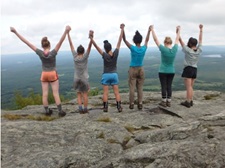 Facility and Course Area
Facility and Course Area
The Wilderness School facility was constructed in the late 1980ies by agreement on State land under the management of The Department of Energy and Environmental Protection (DEEP). The facility was opened in 1990 and after 28 years the facility is well maintained. The main campus houses a large community room with full kitchen facilities that is used year-round. Twelve additional cabin-style buildings are used for administrative offices, lodging, and housing for equipment. The grounds are well-maintained in a wooded area with walking trails and a fresh-water pond. The program course area follows the Appalachian Trail corridor of the Taconic and Berkshire mountain ranges of Connecticut and Massachusetts. Additionally takes place on the main campus and in most of Connecticut’s State Parks and preserves that are in close proximity to state regions for hiking, canoeing, rock-climbing, and team-building activities.
__________________________
About the Staff
Director: Aaron Wiebe (Aaron.Wiebe@ct.gov)
Field Program Supervisors:
[Expeditions] Scott Basile (Scott.Basile@ct.gov)
[Enrollment] Bonnie Sterpka (Bonnie.Sterpka@ct.gov)
[Outreach] Kimberly Thorne-Kaunelis (Kim.Thorne-Kaunelis@ct.gov)
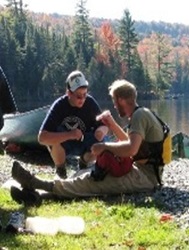 The Wilderness School staff is committed to the belief that all students have the inherent ability to succeed and that the group process is a key element in a youth's growth and change. The staff is rooted in adolescent development and proficient in group work. Rapport building and behavior intervention skills are integral to our staff teams.
The Wilderness School staff is committed to the belief that all students have the inherent ability to succeed and that the group process is a key element in a youth's growth and change. The staff is rooted in adolescent development and proficient in group work. Rapport building and behavior intervention skills are integral to our staff teams.
Staff are trained outdoor professionals with experience in many alternative programs for youth, including Outward Bound and the National Outdoor Leadership School.
The Wilderness School hires seasonal staff members who frequently work throughout the year as professional outdoor leaders, while others are youth workers, teachers, or college students studying social work or experiential education. Our staff have extensive training and personal experience in wilderness skills, including white water paddling, rock climbing, caving, winter programming, ropes course management, and wilderness expedition travel. They are often recognized for their technical skills, outdoor safety judgment, athletic ability, enthusiasm, and concern for youth.
Staff members are certified with a minimum of Wilderness First Aid and professional C.P.R., with staff at Instructor level and above certified as Wilderness First Responder, Wilderness EMT or Wilderness Advanced First Aid.
__________________________
- Expeditions
- How to Enroll Students in an Expedition Program
- How to Prepare for your Expedition
- Watch the Wilderness School Expedition DVD
Questions Concerning Expeditions? Please contact:
Enrollment Coordinator
Bonnie Sterpka, M.S.
860-653-8059, ext.3
bonnie.sterpka@ct.gov
__________________________
Enrollment Forms
Application Materials for Parent/Guardian to complete:
- 2020 Registration Form
- DCF-2300 (Student Application)
Medical Forms:
- SDE-HAR3 (State of CT-Department of Education, Health Assessment Record. NOTE: This form is not "fillable" form.)
- DCF-2303 (Non-Prescription Medication Authorization - OTC) – to be completed by Pediatrician for any non-prescription medication (ibuprofen, Tylenol, vitamins, other) that the applicant may need during the expedition.
- DCF-2304 (Prescription Medication Authorization - PEDIATRIC)– to be completed by Pediatrician for any prescribed medication that the youth will need.
- DCF-2305 (Prescription Medication Authorization - PSYCHIATRIC) – to be completed by Psychiatrist/prescriber for any Psychotropic medication that the youth will need.
Application Materials for Referring Agent to complete:
- DCF-2301 (Referring Agency Background Information Form)
- DCF-2302 (Student Contract – to be completed by Referring Agent, youth and parent)
Other Helpful Information:
-
DCF-2308 (5-7 day course clothing list)
-
DCF-2307 (20 day course clothing list)
- DCF-2306 (Medication Checklist)
- Packing for your Wilderness School Expedition (17 Videos)
Questions concerning forms? Please contact:
Enrollment Coordinator
Bonnie Sterpka, M.S.
860-653-8059, ext. 3
bonnie.sterpka@ct.gov

